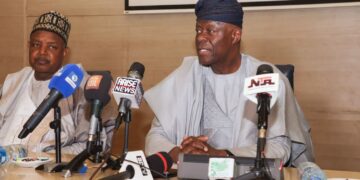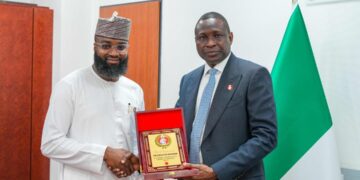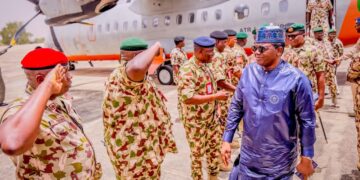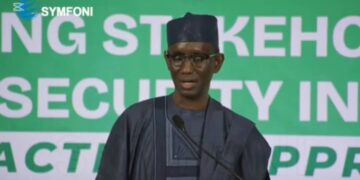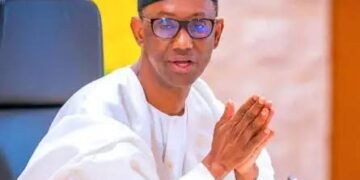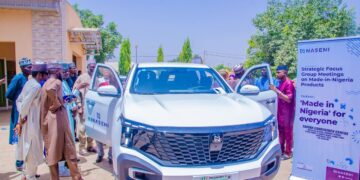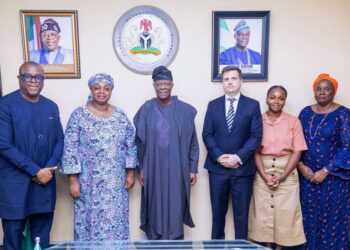EXPERTS’ CONCERNS OVER PUBLIC DEBTS UNFOUNDED, MISCHIEVOUS-BMO
The Buhari Media Organisation (BMO) has described recent concerns in the media over domestic and foreign borrowings by the Muhammadu Buhari administration as unfounded and borne out of mischief.
The group said in a statement signed by its Chairman Niyi Akinsiju and Secretary Cassidy Madueke that the opinions ascribed to so-called experts by a section of the media have no basis in facts and are targeted at misleading members of the public.
“We find it amusing to see the mind-bending attempts by these ‘economic experts’ pontificating on loans taken by the Buhari administration with many of them displaying crass ignorance about the nation’s public debt stock as at June 2015.
“Many of them provide false and unverified information about the debt profile, even when publicly available facts which could be gleamed off the website of the Debt Management Office (DMO), show that as at June 2015, the country’s total debt stock stood at US$63.8bn.
“For the avoidance of doubt, the debt stock include domestic and external borrowings by States and the Federal Government, and by the time President Buhari was completing his first term in office in May 2019, the figure had risen to US$83.8bn.
“So we make bold to say that what was added to the debt profile under the President as at May 2019 was approximately US$20bn and what the so-called experts would not say is that the debts were incurred at a time that the nation’s revenue were at the lowest in over 10 years.
“In spite of that, Nigeria is still firmly under the World Bank’s global threshold in the area of borrowing, compared to several countries in the world, yet these pseudo experts claimed that the country is on the verge of insolvency”.
BMO added that contrary to misleading claims by the National Association of Chambers of Commerce, Industry, Mines and Agriculture (NACCIMA), the Buhari administration has been quite transparent on the loans and their utilization.
“It is indeed worrisome that the NACCIMA President, John C. Udeagbala, would claim that Nigerians were concerned that the borrowings have not be done in an ‘open and transparent manner’ while another economist was quoted as saying that the loans were being used to finance consumption.
“We are at a loss to how the leadership of a stakeholder group like NACCIMA would claim not to be aware that virtually all the loans are tied to infrastructural projects, including highways and rail transportation.
“Is there any Nigerian that would claim not to be aware of the Kaduna-Abuja rail line financed by loan taken by the previous government, or the recently inaugurated Lagos-Ibadan railway line which is one of the legacy projects of the Buhari administration?
“Any unbiased Nigerian would know that all the loans taken were subjected to Cabinet approvals and the terms made public on the website of the official government agency managing the nation’s debt profile.
“In addition, many of the airports, seaports and other infrastructure projects financed by external borrowings are designed to be self-paying with all of them also having a domino effect on economic development in the affected areas.
“We also make bold to say that the Buhari administration is also going to great lengths to diversify the economy to the extent that the non-oil sector has been constantly contributing over 90% to the country’s aggregate GDP, and it is therefore not surprising that a number of government agencies have been exceeding their revenue targets.
“This has also led to Nigeria’s inflation rate dropping for two consecutive months to stand at 17.93% in May 2021 after it had peaked at 18.17% in March, according to the most recent Consumer Price Index released by the National Bureau of Statistics (NBS).
“We also need to add, for emphasis, that the Buhari administration is working at exploiting the nation’s natural gas reserves which stands at an estimated 200.4 trillion cubic feet (Tcf) and is clearly one of the highest in Africa”.
BMO also reassured Nigerians that the country is not on the verge of insolvency under President Buhari and that he would continue to do more with less.


